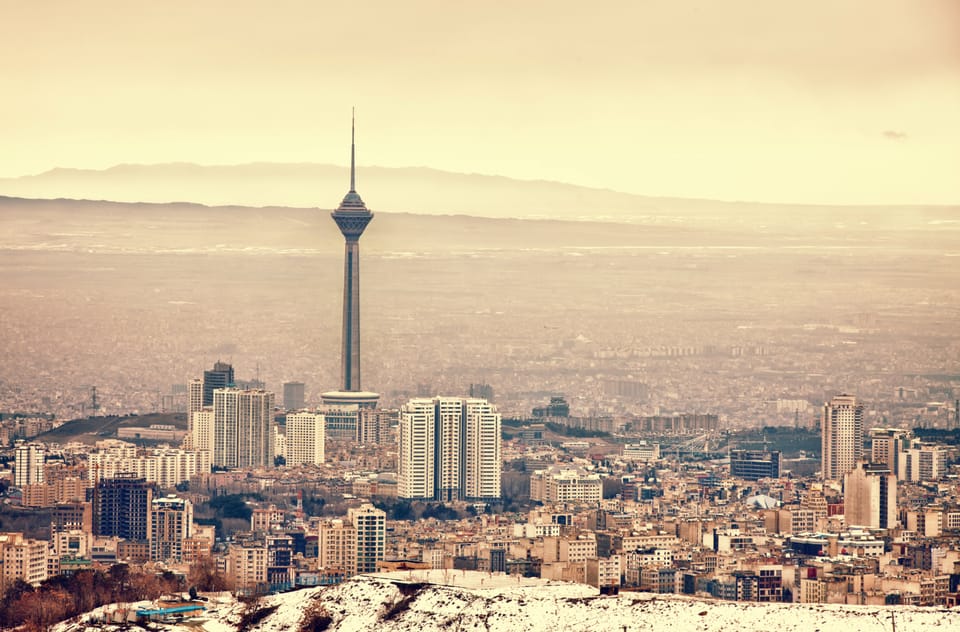Tracking Iranian Influence in the Middle East

Key Takeaways from FilterLabs’ Analysis:
- Iran’s support for Hezbollah appears to be winning the Islamic Republic broad support among its allies, the self-proclaimed “axis of resistance,” and throughout the Arab world,
- At the same time, there are also voices in Arab-language media who seem uncomfortable with Iran’s growing power.
Introducing: Navigating Noise!
Our new podcast, hosted by FilterLabs founder and CEO Jonathan Teubner, is now live!
In the first episode, "5 Vulnerabilities in the Russian Economy the Kremlin Doesn't Want You to Know About," Jonathan talks with Sergei Guriev, Dean of the London Business School.

Tracking Iranian Influence
Iran boasts of an “axis of resistance,” a loose affiliation of governments and militias that oppose both Israel and U.S. influence in the Middle East.
But how popular is Iran in the Middle East, particularly in countries where it supports “resistance” groups? And how is its present conflict with Israel changing its standing in the region?
With these questions in mind, FilterLabs has been tracking narratives around Iran. Talisman—our data dashboard—allows us to see broad media trends, and to dive into the stories that are behind any shifts.
Using Talisman, we looked at thousands of artifacts of Arabic-language news media, especially in three of the countries most affected by the presence of Iranian-backed militias or proxies: Yemen, Lebanon, and Syria. To get a sense of sentiment surrounding Iran and its influence through its proxies, we looked at recent news coverage in these countries that both mentioned Iranian proxy groups, and discussed issues of manipulation and control.
The sharp decline in sentiment from September 28 to October 1 corresponds to an Israeli attack on the Yemeni port city of Hodeidah. The attack was widely regarded as a strike against the Houthis, an Iranian-backed military and political group.
FilterLabs found two narratives emerging from the attack. The first focused on the connection between the Houthis, their Iranian backers, and another Iranian proxy, Hezbollah. The very fact that Israel would attack the Houthis and Hezbollah signaled the growing influence and importance of Tehran. Israeli attacks seemed to increase Iran’s standing as a major player in the eyes of Iranian allies.
But second, there was concern about Iran having too much influence. One Yemeni outlet worried that the Houthi attacks on global shipping would have a negative impact on regional stability. The story emphasized the need for Yemeni independence from Houthi control and characterized the Houthis targeting shipping lines “under the pretext of stopping the Israeli escalation against Iranian arms in southern Lebanon.” Another reported a UN official saying that the Gaza conflict was making peace in Yemen—riven by its own civil war—more unlikely.
We found the same narratives in early October. The sentiment increase from October 7 to 9 corresponds to a speech by Naim Qassem, a Hezbollah leader, on the anniversary of Hamas’s October 7 attack on Israel. Qassam praised Iran as the only ally willing to do something about Israel: “[Iran] has given all these years. Tell me, what have you given them, you doubters and those who demand it? Have you given anything to the resistance? Have you given anything to the Palestinian people?”
Qassem’s speech was not always well received, though—in the three countries we focused on or elsewhere in the region. News stories reported that the Iraqi government bristled at the suggestion that it was not doing enough for the Palestinian cause: “The Iraqi government rejects the discourse of treason against sisterly and friendly countries, and the insult to them, especially as it seeks in the same way to protect the Palestinian people and affirm their right … to sovereignty over their land.” Long an Iranian rival, the Iraqi government appears uncomfortable with Iran’s growing popularity among some Arab groups.
In an even more critical statement, a piece posted by a Yemeni news outlite cited a Kuwaiti analyst who called Qassem’s speech an “incomprehensible … escalation.” The analyst was anxious about Iranian bellicosity and a regional all-out war.
In sum, Iran is enjoying much region-wide popularity, insofar as it is perceived to be standing up to Israeli aggression. At the same time, at least in the countries most affected by the presence and activity of Iranian-backed groups, there is also real concern about the “axis of resistance,” and apparent discomfort with Tehran's growing clout in the region.
Coming Soon: Interactive newsletters, right in Talisman!
We’re rolling out something new at FilterLabs. We now have the ability to create publicly accessible dashboards, with the charts and data used in each newsletter, in Talisman—enabling users to have a richer experience interacting with the data right in the platform. Since a Basic subscription to Talisman is currently free, anyone can sign up and take a look. Instead of seeing a static image of a chart, you’ll have one or more live graphs to explore.
You can read today’s newsletter here in your email or on our website, or check it out in Talisman. Future newsletters will be designed for interactive use and will exist only inside Talisman. But fear not—newsletter subscribers will get an email with key takeaways and a link to the dashboard as soon as it’s live, so you won’t miss a beat.

